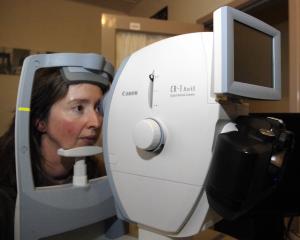The state drug-buying agency Pharmac is considering paying for an expensive drug for people with severe Crohn's disease.
In a statement on Tuesday, the agency announced it would consult the public on whether to fund the powerful anti-inflammatory drug Adalimumab, sold as Humira.
Depending on the outcome, the drug could be available from August 1.
Funding issues for such drugs have been highlighted by 24-year-old Dunedin Crohn's sufferer Joe Noon who has been denied the anti-inflammatory Infliximab.
Adalimumab is similar to Infliximab and yesterday Mr Noon said it was "awesome" that Pharmac might approve a drug that could be an option for him.
He was endea-vouring to contact his specialist to find out more about the drug.
While most district health boards make Infliximab available to patients with severe Crohn's disease, Otago has been an exception.
The Otago District Health Board has refused to pay for the expensive drug and has maintained it should be funded nationally to ensure equality.
Chief executive Brian Rousseau said yesterday he was "very happy" to receive Pharmac's consultation paper and would ensure it went to clinicians in Otago and Southland so they had an opportunity to respond.
"I'm very pleased with Pharmac taking a proactive approach to try and address the issue."
Crohn's researcher Dr Richard Gearry, of Christchurch, said Adalimumab and Infliximab were similar but with some differences "and some patients will respond to one and not the other.
There are some issues there.
"But certainly the fact that they are looking seriously [at Adalimumab] is very exciting, a positive step, and hopefully it all goes forward."
He believed both drugs were similarly expensive - costing over $25,000 for one year of treatment.
Dr Gearry expected those who would benefit from the drug would be from the 5% of Crohn's disease sufferers with severe symptoms, while "those with mild disease can be controlled with conventional medications".
Although there is no cure for Crohn's disease, Adalimumab might allow patients to "go into remission".
Dr Gearry said the drug would enable patients to "get on with their lives so their lives aren't controlled by the disease".











